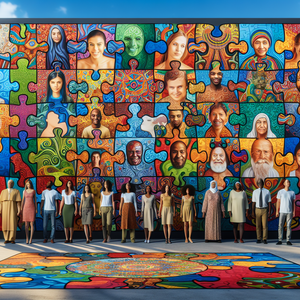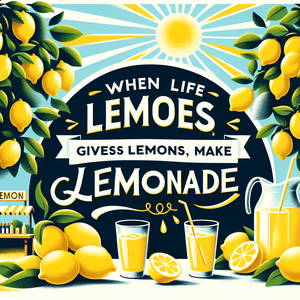Celebrating Freedom Through Food: The Heart of Juneteenth Traditions

Juneteenth, celebrated on June 19th, marks the day in 1865 when Union soldiers arrived in Galveston, Texas, to announce the end of the Civil War and the liberation of enslaved African Americans. This monumental moment is reflected in the food shared during celebrations. Traditional dishes often include collard greens, cornbread, fried chicken, and sweet potato pie, each with its own historical significance. Collard greens, for example, represent prosperity and hope. Historically, they were a staple for enslaved people who often cultivated these greens in their gardens. The practice of growing and consuming collard greens has been passed down through generations, serving as a reminder of the resilience of African American culture in the face of adversity. Similarly, cornbread has roots in African cooking traditions, symbolizing sustenance and nourishment. It reflects the ingenuity of enslaved Africans who adapted their culinary practices to the ingredients available in America. Dishes like fried chicken, often associated with Southern cooking, echo the resourcefulness of those who turned simple ingredients into beloved meals. Sweet potato pie, rich in flavor and history, is a nod to the agricultural heritage of African Americans, who cultivated sweet potatoes as a staple crop. These dishes, passed down through generations, serve as a reminder of the struggles faced by ancestors and the victories achieved in the journey toward freedom.
Personal Stories and Favorite Recipes
To gain deeper insight into the significance of these dishes, we spoke with Chef Marcus Washington, a culinary artist known for his commitment to preserving African American culinary traditions. Chef Marcus shared his inspiration for creating dishes that honor his heritage: "Every recipe has a story. My grandmother taught me how to make her famous fried chicken, and each time I prepare it, I feel connected to my roots." This connection to family history is echoed by community member Angela Johnson, who recounted her family’s Juneteenth celebrations, which always featured her mother’s sweet potato pie. "The pie isn’t just dessert; it’s a symbol of our resilience. Every bite reminds me of the sacrifices made for our freedom," she noted. These personal narratives illuminate the emotional weight carried by food during Juneteenth, transforming meals into acts of remembrance and celebration. The recipes become living legacies, preserving the memories of ancestors while fostering a sense of belonging and identity within families and communities.
The Role of Food in Community Building
Juneteenth is not just a day of reflection; it is also a time for communities to come together in celebration and solidarity. Food plays a crucial role in fostering connections. Potluck-style gatherings, where families bring dishes to share, create an atmosphere of unity and joy. These communal meals allow individuals to share their culinary heritage while also learning about the diverse traditions within the African American community. Chef Marcus emphasizes the importance of these gatherings: "Food is a universal language. It breaks down barriers and fosters conversations about our history and culture. When we share a meal, we’re sharing a piece of our identity." Such gatherings serve as vital opportunities for education, as younger generations learn about their heritage through the flavors and stories shared by their elders. The act of cooking and sharing food becomes an intergenerational bridge, connecting the past with the present and instilling a sense of pride in one’s cultural identity.
As we celebrate Juneteenth, it is essential to recognize the profound impact that food has on our understanding of freedom, culture, and community. Traditional dishes tell stories of resilience, heritage, and the enduring spirit of those who fought for liberation. By honoring these culinary traditions and the memories they carry, we not only preserve our history but also strengthen the bonds that unite us. As we gather around tables filled with cherished recipes, we celebrate not just the emancipation of a people, but the ongoing journey toward justice and equality for all. In this way, every meal becomes a testament to freedom, a reminder of where we came from, and a celebration of where we are headed. The act of sharing food during Juneteenth transcends mere nourishment; it becomes a sacred ritual that acknowledges the struggles of the past while inspiring hope for the future.
Community Engagement Coordinator
Nonprofit organizations, community centers, cultural institutions
Core Responsibilities
Develop and implement community outreach programs that foster cultural awareness and celebration, specifically around significant events like Juneteenth.
Collaborate with local organizations, schools, and community leaders to create inclusive programs that connect diverse populations.
Organize events, workshops, and forums that educate the public on historical and cultural significance, ensuring representation of marginalized voices.
Required Skills
Strong communication and interpersonal skills for effective collaboration.
Experience in event planning and community organizing.
Knowledge of cultural history and sensitivity towards diverse communities.
Culinary Historian
Museums, universities, food history organizations
Core Responsibilities
Research and document the history of African American cuisine, focusing on traditional dishes associated with cultural celebrations like Juneteenth.
Conduct interviews and gather oral histories from community members to preserve personal stories related to food customs.
Write articles, books, or create educational materials that highlight the significance of culinary traditions in cultural identity.
Required Skills
Strong research and writing abilities with a focus on narrative storytelling.
Background in history, anthropology, or culinary arts.
Familiarity with archival research methods and oral history techniques.
Food and Culture Educator
Schools, culinary schools, cultural institutions
Core Responsibilities
Create and deliver educational programs that teach students and community members about the cultural significance of traditional foods, particularly in the context of African American heritage.
Develop lesson plans that incorporate cooking demonstrations, tastings, and discussions on the historical roots of various dishes.
Facilitate workshops that encourage participants to explore their culinary heritage and its relation to cultural identity.
Required Skills
Teaching experience, ideally in culinary arts or cultural studies.
Ability to engage diverse audiences through interactive learning.
Passionate about food, culture, and education with strong organizational skills.
Recipe Developer and Food Writer
Food magazines, publishing houses, culinary websites
Core Responsibilities
Create new recipes inspired by traditional African American dishes, ensuring they reflect cultural authenticity and modern cooking techniques.
Write articles that explore the stories behind recipes, emphasizing their historical and cultural significance.
Collaborate with chefs and food historians to develop content for cookbooks, blogs, or magazines.
Required Skills
Culinary skills with experience in recipe development.
Strong writing and storytelling abilities, with a focus on food culture.
Familiarity with publishing and social media platforms for food content.
Cultural Events Planner
Event planning companies, nonprofit organizations, cultural institutions
Core Responsibilities
Plan and execute community events that celebrate cultural heritage, including Juneteenth festivities, ensuring they are inclusive and educational.
Manage logistics, including venue selection, catering (with a focus on traditional cuisine), and marketing efforts to attract a diverse audience.
Partner with local artists, musicians, and historians to create a rich, engaging atmosphere that reflects the cultural significance of the event.
Required Skills
Proven experience in event planning with a focus on community engagement.
Strong organizational skills and attention to detail.
Ability to work collaboratively with diverse stakeholders and manage budgets.


